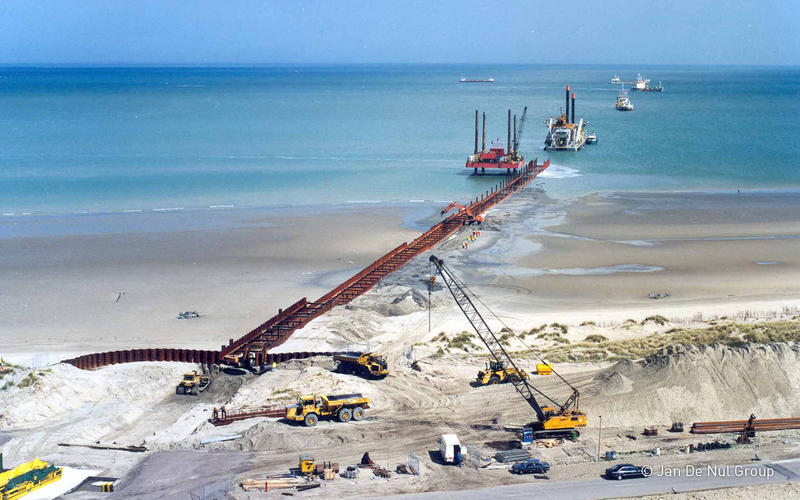The new technology includes solar photovoltaic (PV) panels installed in offshore waters, combined with aquaculture and offshore wind power in the same location

Image: The consortium intends to design a cost competitive concept for the new technology. Photo: Courtesy of Jan De Nul Group.
A consortium led by Tractebel, including Jan De Nul Group, DEME, Soltech and Ghent University, has launched an innovative project to explore the marine floating solar technology.
The new technology includes solar photovoltaic (PV) panels installed in offshore waters, combined with aquaculture and offshore wind power in the same location.
The offshore solar technology would become one of the essential future green energy sources
According to the consortium partners, the technology would become one of the essential future green energy sources and provide more efficient use of available space.
In addition, the costs of solar PV technology are constantly decreasing and the move towards high-wave offshore PV makes it logical step following freshwater floating PV on lakes, dams and low-wave offshore applications in lagoons and other sheltered environments.
Tractebel has strong engineering skills in both PV technology and offshore engineering, DEME and Jan De Nul Group are experienced in marine operations, Soltech is specialized solar PV panels and Ghent University is the offshore engineering, aquaculture and ecosystem knowledge centre.
Ghent University senior business developer Margriet Drouillon said: “This multidisciplinary project fits perfectly within Ghent University’s strong efforts to expand its Research & Development in marine / maritime sciences and Blue Growth in general. With the Laboratory of Aquaculture, the Environmental Toxicology Unit and the Maritime Technology Division, we have three expert research groups in their field participating in the project.”
The challenges for the new technology includes rough offshore environment with salty water, strong currents and wave action.
The consortium intends to design a cost-competitive concept for the floater structure, and investigate the ecosystem integration of the floating PV panels from the start, to reduce the impact.
Being the first to explore the innovative offshore solar solution in Belgium, the consortium partners aim to realize offshore solar farms in the Belgian North Sea.
Tractebel Belgium CEO Denis Lohest said: “This groundbreaking initiative perfectly fits Tractebel’s ambition to become a world leader in offshore engineering for energy production, storage and transport.
“Following our active involvement in one of the world’s first floating wind farms, it is a great honor for us to team up with key energy players for the development of first-of-its-kind technology for high-wave offshore solar panels.”
